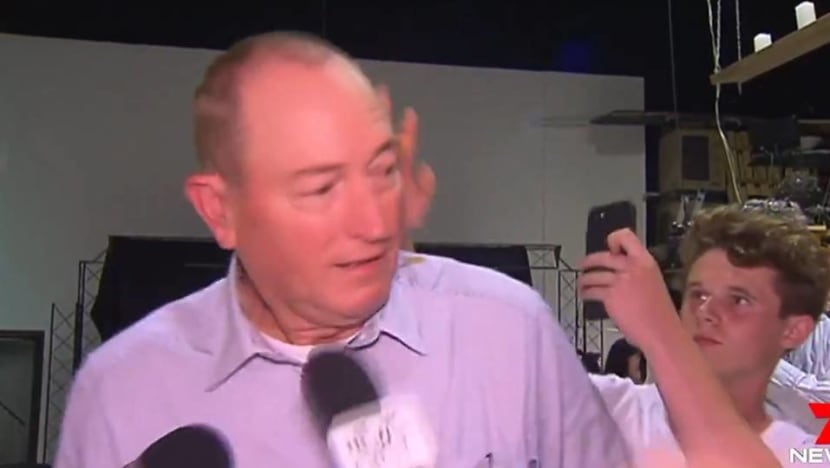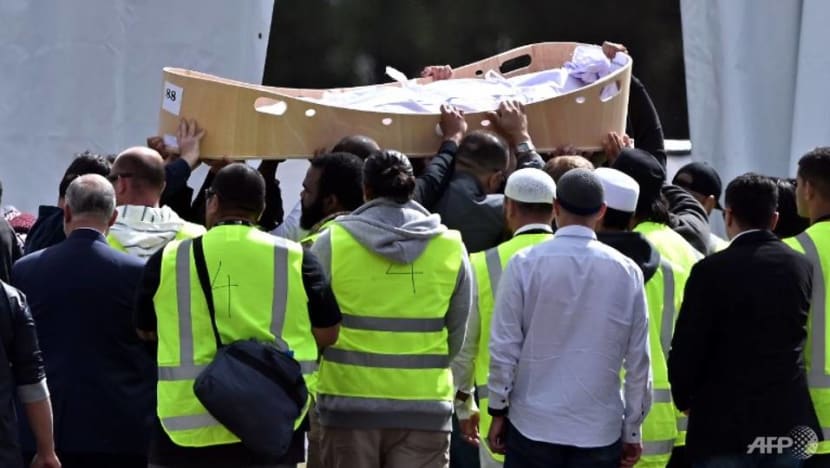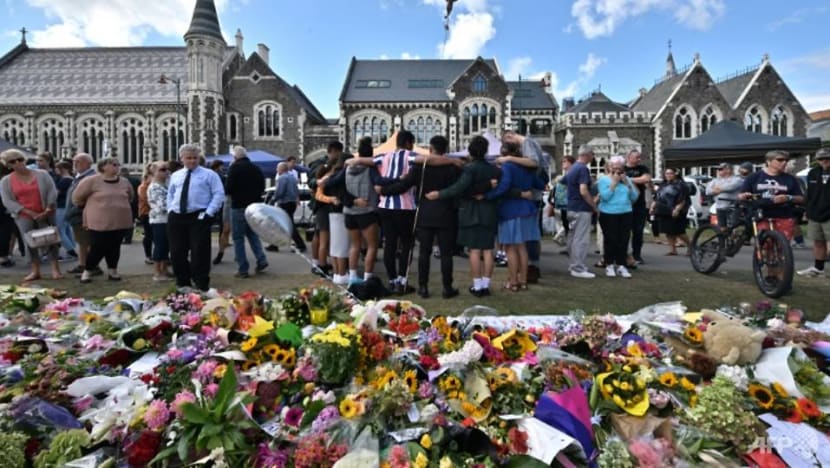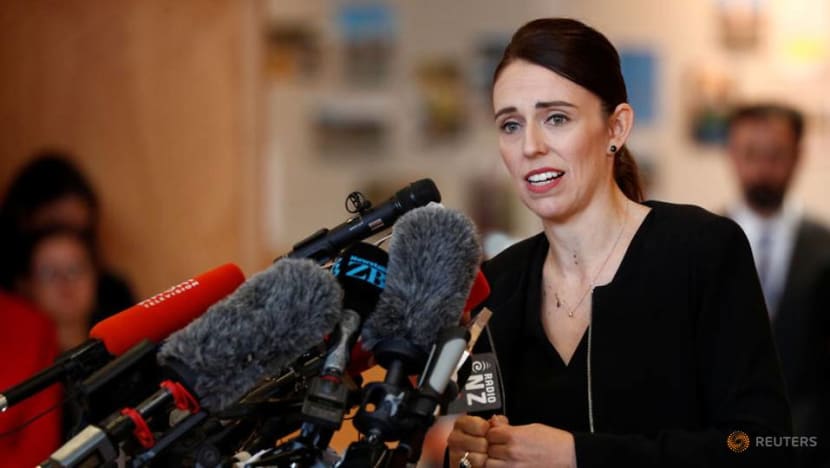commentary Commentary
Commentary: Hate cannot be an appropriate response to the Christchurch shootings
Why Australian Senator Fraser Anning was wrong to say it was his right to say the shootings in Christchurch was a result of ‘Muslim immigration’, and why we should call out extremism whatever forms it comes in.

Screengrab of the moment Australian senator Fraser Anning was egged by William Connolly.
SINGAPORE: The only thing necessary for the triumph of evil is for good men to do nothing.
Those are the famous words commonly attributed to author Edmund Burke, so pertinent now in the wake of the Christchurch shootings.
Last week, the world watched in shock as a gunman killed 50 people and injured dozens more after attacking two mosques in New Zealand.
It opened the world’s eyes to the dangers of right-wing extremism, a phenomenon that while not new, has come into sharper focus with the shootings and certain responses to the terrible tragedy.
The attack drew widespread ire and anger, but as the families of the 50 dead mourned their dead, the senseless act has somehow opened the doors for people to spread hate.
READ: Christchurch survivor forgives his wife's killer
Shortly after the attack, Australian Senator Fraser Anning released a statement claiming the shootings were a result of New Zealand’s open door policy and "Muslim immigration".
Even as Anning’s statement was troubling, what was arguably more worrying was the many more who have rushed to support his views.
His xenophobic, victim-blaming statement has enabled and emboldened other similarly despicable views. If such views are left to fester, there is no telling what they may lead to.
The silver lining in all this was how quickly the world moved to condemn Anning’s remarks. New Zealand Prime Minister Jacinda Arden called them “a disgrace”, while her counterpart in Australia said they were “ugly” and “appalling”.
But even if Anning was left with egg on his face - quite literally, when a teenager smashed one into his head - what is disturbing about this episode is that such views still enjoy expressed support from many more around the world.

A quick search on Change.org, a popular petition site, showed nearly 10 petitions set up to “protect Anning’s right” to his freedom of speech.
Have a quick look on social media, and you’ll find posts and groups standing “in solidarity” with Anning and calling for people to "respect his freedom of speech".
One petition reads: “We the Australian people need this man with a backbone and a voice to continue standing up for us."
But the freedom of speech does not give you the right to spew hate - it never has. And it’s worth considering whether the right to speak means you can say whatever you want, whenever you want, and irrespective of what sensitivities might be trampled on.
It is also an imperative for the rest of us to call out hate in all its forms should we ever stumble across it - online or in person.
READ: Commentary: Christchurch attack raises uncomfortable questions about intelligence failure
THE RESPONSIBILITIES OF SPEECH
While proponents of free speech often highlight that how fundamental it is to the bedrock of democracy and the free world, it’s worth considering the equal importance of preserving public space and upholding inclusivity.
What is less talked about is an individual’s right to free speech comes with a condition - that individuals must bear responsibilities for what they say.
One of the biggest institutions in the world with a clear set of rules when it comes to the freedom of speech is the European Convention on Human Rights.

A landmark case in 2004 laid out clearly how the freedom of speech does not allow someone to say or do whatever they want.
Between November 2001 and January the year after, a right-wing extremist from the British National Party put up a large poster of the Twin Towers in flames, with the words: “Islam out of Britain - Protect the British”.
After he was found guilty of a public order defence, he appealed to the high court in Britain, which quickly dismissed it.
He took it one step further, going to the European Court of Human Rights, claiming his rights to his freedom of speech had been curtailed.
But the judges at the highest court called the poster “a public expression of attack on all Muslims”. They said it had been “incompatible” with the values of the Convention on Human Rights - notably tolerance, social peace and non-discrimination.
He had no right to claim his rights were being curbed, and neither does senator Anning or the others around the world signing petitions to support the politician.
READ: 'My special little one': A Christchurch father's message to slain son
A SHARED RESPONSIBILITY TO CALL OUT BIGOTRY
Brenton Tarrant, 28, has been been charged with murder after being accused of carrying out the shootings on the Christchurch mosques. The personal trainer had recorded his beliefs in a 73-page manifesto, expressing several anti-immigrant sentiments and calls himself an “eco-facist”.
He emailed the manifesto to dozens of people, including prime minister Arden’s office and media outlets, before live-streaming the attack.
Senator Anning’s comments after the attack might have been quickly denounced by many of his own supporters, but worryingly, there are others who have quickly jumped to his defence.

Being a high-profile political leader means you have a larger-than-average following, and must consider how statements like these can shape the actions of others.
The statement justified the gunman’s actions and put the blame on the victims - two obvious signs that it should be cast aside straight away.
People appear quick to jump on the bandwagon when groups carry out terror attacks in the name of Islam, but are slower to condemn right-wing bigotry.
All it takes for hate and extremism to grow is for the rest of us to cower and not do anything. Racist, xenophobic or hateful comments must be spoken out against.












